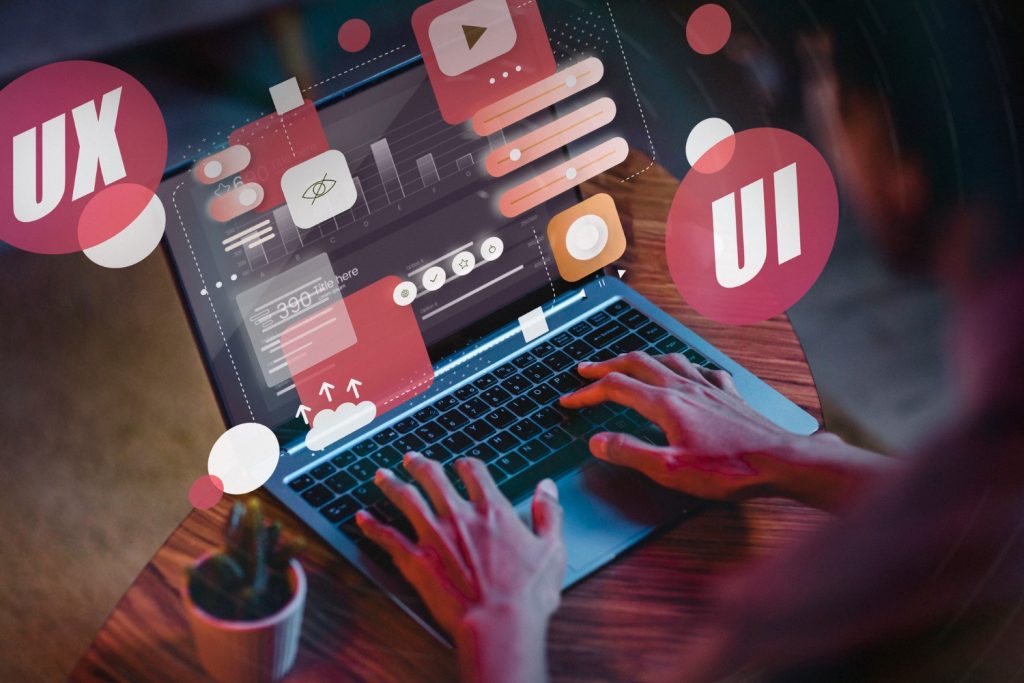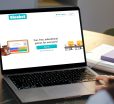What To Expect From A UX Design Career

Table Of Contents
A career in UX (user experience) design is an interesting path for creative problem-solvers. UX designers focus on creating intuitive, user-friendly products and experiences across digital platforms.
Building a UX design career can be fascinating for skilled people with an interest in making technologies, services, and products more enjoyable. UX designers are the forces behind all the user-friendly apps, software, and websites we come across.
Further, building a career in UX design needs a deep understanding of the users’ needs. It is as crucial as following the principles of a good design.
Do you want more insights as a budding or seasoned UX designer? Here’s an overview of what to expect if you pursue a career in this growing field.
Building A UX Design Career: Things You Must Keep In Mind

The UX design market in the USA is on the rise. The US Bureau of Labor Standards has confirmed a strong job outlook for people willing to make a UX design career through 2030. Further, the demand for UX designers is the highest in the tech and ecommerce industries.
So, if you want to start or advance your career as a UX designer, this is the most opportune moment. Have a look at the following and learn how to prepare yourself and what you expect on a day-to-day basis as a UX designer.
1. Education And Skills
Most UX design jobs require at least a bachelor’s degree in a relevant field like human-computer interaction, cognitive psychology, or graphic design.
There are also now specialist programs in UX Design that are available via online degrees in Maryland.
Coursework focuses on principles of good design, user research, information architecture, interaction design, prototyping, and usability testing.
Beyond your formal education, you’ll need strong skills in communication, empathy, critical thinking, and collaboration.
Design skills like wireframing, prototyping, and knowledge of design software are also essential. Mastering design software like Figma, Sketch, or Adobe XD will give you a competitive edge.
2. Day-to-Day Work
UX designers spend their days understanding users’ needs, conceptualizing solutions, creating wireframes and prototypes, testing designs, and refining products.
You’ll collaborate with other teams like product managers, developers, and visual designers. No two days are exactly the same.
One day, you may conduct user interviews and translate findings into design requirements.
Next, you may sketch wireframes and workflows for a new feature. You’ll constantly iterate designs based on user feedback. Be ready to juggle multiple projects and priorities at once.
3. Work Settings
UX designers work in a variety of settings, including corporate IT departments, digital agencies, startups, and freelancers.
Agency and startup roles tend to move at a faster pace with quick project turnarounds. In-house corporate roles focus on long-term product strategy.
Consider which pace and environment suits you best. Remote work is also increasingly common in UX design, opening up opportunities across the globe.
Working can be combined with travel, which will appeal to those who want a better life-work balance.
4. Career Development
As a beginner, you’ll likely work as a junior UX designer assisting senior designers. With a few years of experience, you can advance to mid-level and lead design projects.
Senior-level designers may oversee teams and shape design strategies across products or brands. Some seasoned designers move into UX research or UX management roles.
Taking on freelance projects on the side can build your skills and portfolio, which is useful. Attending industry conferences and events is a great way to continue honing your skills.
5. Pay And Outlook
According to the U.S. Bureau of Labor Statistics, the median salary for UX designers in 2024 was about $94,000.
Higher salaries upwards of $130,000 are common with 5+ years of experience. With UX being an in-demand skill, the job growth outlook is strong, with the sector expected to grow by 15%.
UX design offers rewards like seeing your designs come to life and positively impact users. You’ll get to flex your creative muscles daily.
Just be ready to balance tight deadlines and manage feedback from stakeholders. With hard work and persistence, it can lead to an exciting and fulfilling career.
Will Bootcamps Help To Start And Advance UX Design Career?

Yes, bootcamps are a great help to start or advance your UX design career. During these bootcamps, you will learn to use industry-specific tools such as Adobe XD and Figma.
Next, you will learn the core skill, which is designing the interfaces of websites, software, and apps. In addition, there will be training on user research, designing prototypes, and testing interfaces.
Understanding the importance of these bootcamps for UX design professionals, educational institutions like Columbia University and the University of Texas at Austin have “COLUMBIA ENGINEERING UX/UI BOOTCAMP” and “THE UX/UI BOOTCAMP AT UT AUSTIN.”
However, you also have provisions for open studies if you want to learn the art and science of UX design at your own pace. The Maryland Institute College of Art, or MICA, is one of the best names in this regard.
Building A UX Design Career: Things You Can Expect In An Open Study Course
Are you already working full-time to make a UX design career? Or, are you a student enrolled in other streams and willing to learn UX design? Are you a digital nomad/freelancer willing to upgrade your skills at a flexible time and pace?
These open studies are perfect for people who have other preoccupations, as you have a specific timespan (15 months for the MICA course) to complete the course.
The accelerated online format does not need you to follow set class timings. So, you can easily fit your learning time into your busy schedule.
In these courses, you will learn about the design essentials and computer science. So, along with learning the principles of good design, you will understand the following things.
- Analytical sides of UX design
- User-experience equation
- Problem-solving approach
Furthermore, you will be taking part in innovative student projects. These projects are great for challenging your thinking process and making you fit for the “tech-focused marketplace.”
Read Also:

























